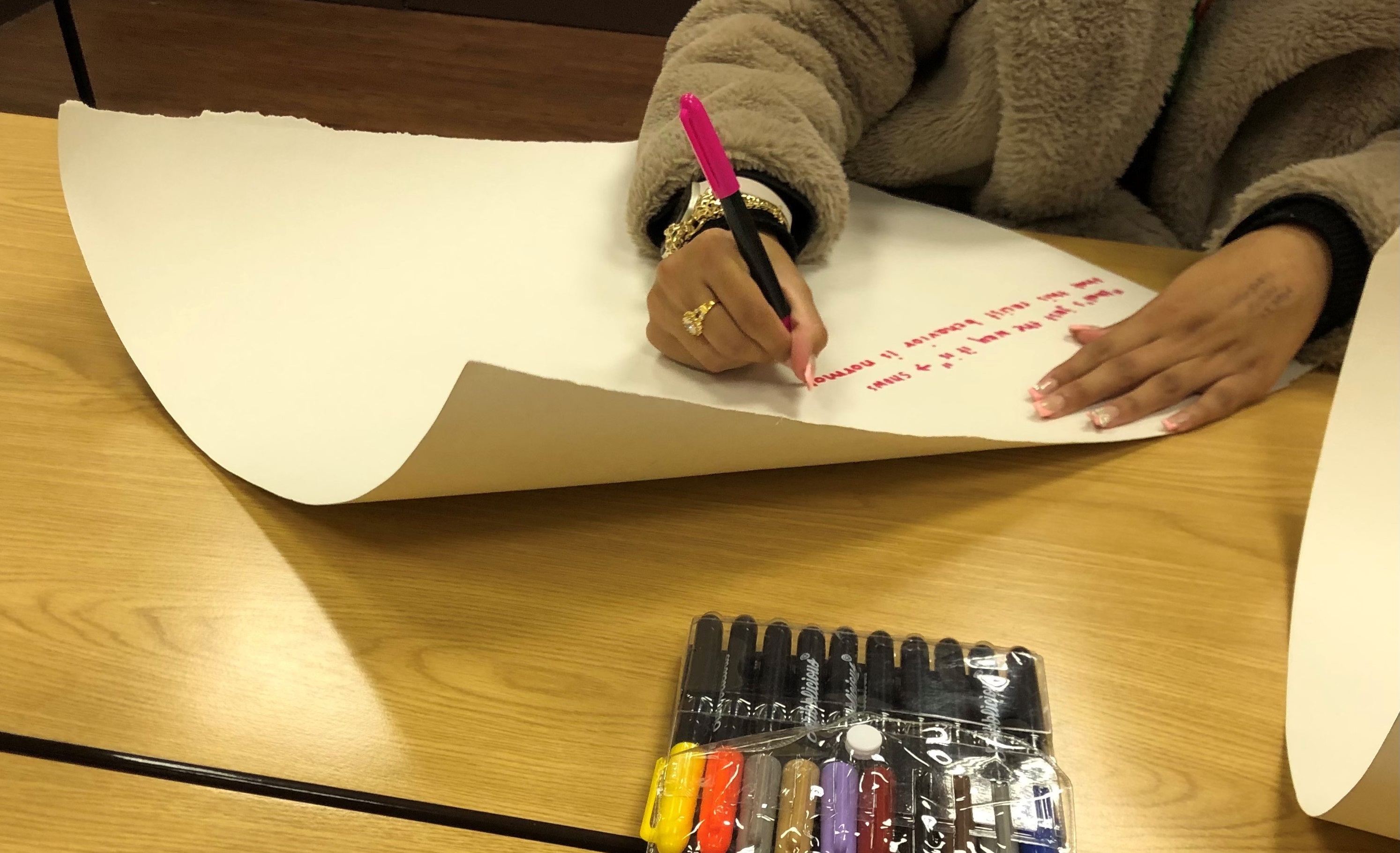‘Essential’ to listen to children's voices on youth justice – report

The project reference group composed and recorded a rap as part of the project.
12 December 2024
It is essential for youth justice agencies to explicitly seek children’s opinions about matters affecting them, according to a new report.
The research, by academics from Aberystwyth and Loughborough Universities and funded by the Nuffield Foundation, focused on understanding how children experience and perceive encounters within the youth justice system in England and Wales.
The study was aligned with the Youth Justice Board’s ‘Child First’ approach, which guides all aspects of work with children in trouble. ‘Child First’ is based on the latest research and evidence and is designed to keep communities safe by helping children achieve their best outcomes and prevent offending.
The research emphasised the need to move beyond adult-centric policies and practices to ensure that children involved in the justice system are “listened to, and their views respected”.
The report outlines recommendations for improving collaboration at every level of the Youth Justice system, including embedding ‘Child First’ collaboration practise into all agencies; actively involving children in decision-making; neutralising power imbalances through child-friendly practices and welcoming environments; ensuring consistency in collaboration across police, courts, and custodial services; and incorporating children’s voices in all research and policy development.
Dr Kathy Hampson, a Lecturer in Criminology at Aberystwyth University, was part of the research team:
“There is a real opportunity here to make a difference to the way children experience youth justice. By giving them a seat at the table of decision-making (both for their own youth justice journey and more widely within the sector), we are much more likely to see Child First truly embedded into practice.”
Andrea Nisbet is Research Associate at Loughborough University:
“This has been such an exciting and interesting project to work on. It has been a privilege to speak with so many children and hear their views about a range of experiences - good and bad, which hopefully, will lead to positive changes to youth justice policy and practice”.
The study focused on one key aspect of the ‘Child First’ framework – collaboration with children – and explored how their engagement can shape better outcomes across the entire Youth Justice system.
To empower children, a project reference group consisting of “justice-experienced” children, collaborated on all aspects of the project. They worked together on creative research, and even recorded a rap song in a professional studio, blending their words with the views of those who took part.
Four key themes emerged from interviews with children in different parts of the youth justice system:respect and communication, aspirations and support, relationships and environment, and consistency across agencies.
The research findings challenge youth justice agencies to embrace the principles of ‘Child First’ collaboration. Practical tools, including training resources, creative methods, and the project reference group’s rap, will be shared with practitioners to help embed these practices.
The full report is available here:
https://www.lboro.ac.uk/subjects/social-policy-studies/research/child-first-justice/examining-childrens-perspectives.



